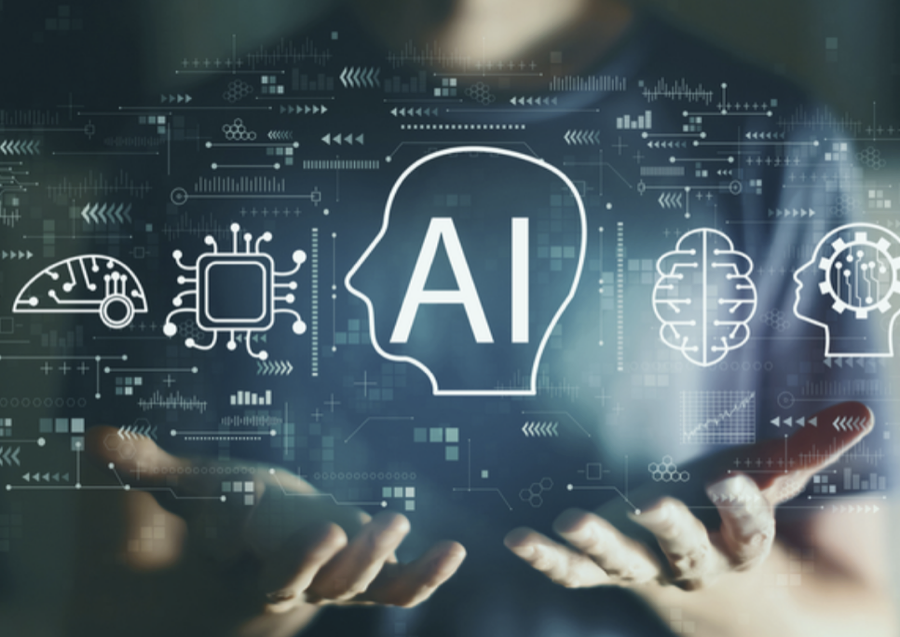In an era where content is king, businesses are constantly seeking innovative ways to create engaging, relevant, and high-quality material that resonates with their audience. Artificial Intelligence (AI) has emerged as a game-changer in the content creation landscape, providing tools and solutions that streamline processes, enhance creativity, and improve audience targeting. Here’s a closer look at the role of AI in content creation and how it’s transforming the way businesses approach their marketing strategies.

1. Automating Content Generation
One of the most significant impacts of AI on content creation is automation. AI-driven tools can generate written content at remarkable speed, allowing marketers to produce articles, blogs, and social media posts more efficiently.
- Text Generation: AI models, such as OpenAI’s GPT-3, can create coherent and contextually relevant text based on prompts provided by users. This capability can help businesses generate product descriptions, blog posts, and even entire articles in a fraction of the time it would take a human writer.
- Content Personalization: AI can analyze user data to tailor content to individual preferences. For instance, it can create personalized email newsletters or website content that aligns with users’ interests, increasing engagement and conversion rates.
2. Enhancing Creativity
AI is not just about automation; it also plays a crucial role in enhancing creativity in content creation. By leveraging AI, content creators can explore new ideas and formats that resonate with their audience.
- Idea Generation: AI tools can analyze trends, keywords, and user behavior to suggest relevant topics and angles for content creation. This can inspire writers and marketers to develop fresh, engaging material that meets audience needs.
- Content Optimization: AI can assist in optimizing content for search engines (SEO) by suggesting keywords, phrases, and structures that improve visibility. Tools like Clearscope and Surfer SEO analyze top-performing content to help creators enhance their writing.
3. Streamlining Content Curation
Content curation is vital for maintaining a consistent online presence and keeping audiences informed. AI can significantly streamline this process by filtering and organizing relevant content.
- Smart Curation Tools: AI-powered platforms can sift through vast amounts of information to identify relevant articles, blogs, and social media posts that align with a brand’s niche. This allows marketers to share valuable content with their audience without spending hours searching for it.
- Trend Analysis: AI can monitor social media and online discussions to identify emerging trends and topics. By staying ahead of the curve, businesses can create timely content that captures audience attention and positions them as thought leaders in their industry.
4. Improving Audience Engagement
Engaging audiences is essential for successful content marketing. AI can enhance interaction and foster a deeper connection between brands and their audiences.
- Chatbots and Virtual Assistants: AI-driven chatbots can handle customer inquiries, provide personalized recommendations, and guide users through a website. By enhancing customer service and engagement, businesses can create a more interactive and satisfying user experience.
- Interactive Content Creation: AI can help create interactive content, such as quizzes, polls, and assessments, which encourage user participation. This type of content not only boosts engagement but also provides valuable insights into audience preferences.
5. Analyzing Content Performance
Understanding how content performs is crucial for refining strategies and improving future efforts. AI can automate and enhance performance analysis, allowing marketers to make data-driven decisions.
- Analytics Tools: AI-powered analytics tools can track engagement metrics, user behavior, and conversion rates. By analyzing this data, businesses can determine what content resonates most with their audience and adjust their strategies accordingly.
- Predictive Analytics: AI can predict future content performance based on historical data, helping marketers allocate resources effectively and identify opportunities for growth. This foresight enables businesses to stay agile and adapt to changing audience needs.
6. Ethical Considerations in AI Content Creation
While AI brings numerous advantages to content creation, it also raises ethical considerations. Issues such as plagiarism, misinformation, and the potential for biased content must be addressed.
- Originality and Authenticity: Businesses should ensure that AI-generated content is original and not plagiarized. Combining AI capabilities with human oversight can help maintain content integrity and authenticity.
- Bias and Misinformation: AI algorithms can unintentionally perpetuate biases present in their training data. It’s essential for content creators to critically evaluate the information produced by AI tools to avoid spreading misinformation.
Conclusion
The role of AI in content creation is transforming the landscape of digital marketing. By automating processes, enhancing creativity, streamlining curation, and improving audience engagement, AI is enabling businesses to create high-quality, relevant content more efficiently than ever before.


No responses yet